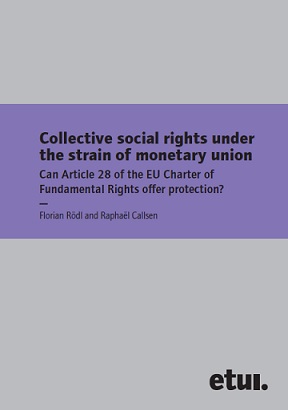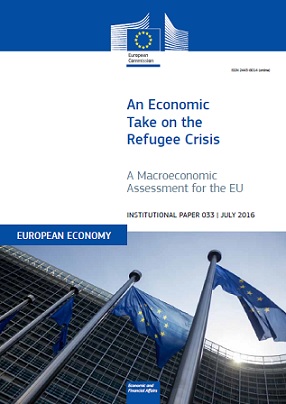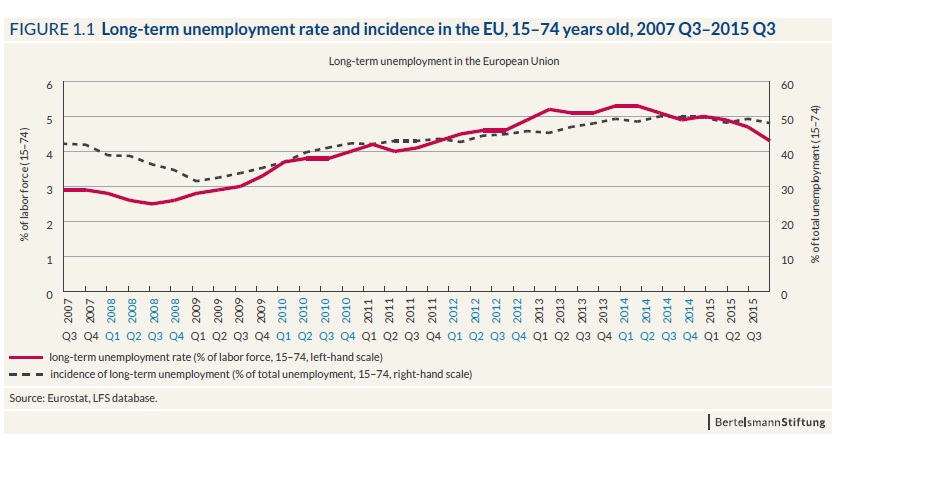Rödl, Florian, Callsen, Raphaël, (2016), “Collective social rights under the strain of monetary union”, ETUI This report examines in depth the legality of the measures taken by the European Union, alongside the European Central Bank (ECB) and the International Monetary Fund (IMF), in the wake of the financial and debt crisis. Beginning with a factual presentation of the European Union’s post-crisis agenda, which has focused on a flexible, productivity-based wage policy, …Read More
From brain drain to brain circulation: How labour mobility can help less developed European regions
Crescenzi, Riccardo, Holman, Nancy, Orrù, Enrico, (2016), “From brain drain to brain circulation: How labour mobility can help less developed European regions”, LSE Europpblog, 29 July One of the potential problems created by the free movement of people is that skilled workers are drawn toward more developed areas, undermining the development of their own regions. As Riccardo Crescenzi, Nancy Holman and Enrico Orrù write, this process, commonly referred to as ‘brain drain’, can present a …Read More
An Economic Take on the Refugee Crisis
European Commission, (2016), “An Economic Take on the Refugee Crisis”, European Commission, Institutional Paper 033, July Europe is facing an unprecedented surge in the number of asylum seekers and refugees. These flows have put considerable strain on public authorities in several Member States. From a purely macroeconomic point of view, the impact appears moderate, stemming in the short term from increased public spending and, over time, a slight rise in labour …Read More
Fleeing the centre: the rise of challenger parties in the aftermath of the euro crisis
Hobolt, Sara B., Tilley, James, (2016), “Fleeing the centre: the rise of challenger parties in the aftermath of the euro crisis”, West European Politics, 16 June This article argues that both sanctioning and selection mechanisms can help to explain this flight from the centre to challenger parties. First, voters who were economically adversely affected by the crisis punish mainstream parties both in government and in opposition by voting for challenger …Read More
Increasingly unequal? The economic crisis, social inequalities and trust in the European Parliament in 20 European countries
Sani, Giulia M. Dotti, Magistro, Beatrice, (2016), “Increasingly unequal? The economic crisis, social inequalities and trust in the European Parliament in 20 European countries”, European Journal of Political Research, 13 January The 2008/2009 economic crisis has been identified as an important element contributing to declining trust in institutions in Europe and worldwide. However, it is unclear whether this decline in trust is distributed homogenously among citizens or whether there are …Read More
The Changing Nature of Gender Selection into Employment: Europe over the Great Recession
Juan J. Dolado, Cecilia Garcia-Penalosa, Linas Tarasonis, (2016), “The Changing Nature of Gender Selection into Employment: Europe over the Great Recession”, CEPR DP 11367, Ιούνιος The aim of this paper is to evaluate the role played by selectivity issues induced by nonemployment in explaining gender wage gap patterns in the EU since the onset of the Great Recession. We show that male selection into the labour market, traditionally disregarded, has increased. …Read More
Long-term Unemployment in the EU: Trends and Policies
Duell, Nicola, Thurau, Lena, Vetter. Tim, (2016), “Long-term Unemployment in the EU: Trends and Policies”, Bertelsmann Stiftung Study, 2016 As a consequence of the 2008 global economic and financial crisis, long-term unemployment has, yet again, become one of the key issues on the European labor market. In the third quarter of 2015, the European Union recorded some 22 million unemployed. Nearly half of these individuals (48.2 %) were unemployed for 12 months …Read More
Improving the measurement of material deprivation at the European Union level
Guio, Anne-Catherine, Marlier, Eric, Gordon, David, Fahmy, Eldin, Nandy, Shailen, Pomati, Marco, (2016), “Improving the measurement of material deprivation at the European Union level”, Journal of European Social Policy, June In June 2010, European Union (EU) Heads of State and Government adopted a social inclusion target as part of the new ‘Europe 2020 Strategy’: to lift at least 20 million people in the EU from the risk of poverty and exclusion by 2020. One of the three indicators used to monitor …Read More
The Purpose Of European Labour Law: Floor Of Rights – Or Ceiling?
Countouris, Nicola, Koukiadaki, Aristea, (2016), “The Purpose Of European Labour Law: Floor Of Rights – Or Ceiling?”, Social Europe, 6 June The evocative aphorism that ‘on ne tombe pas amoureux d’un grand marché’ perfectly captures the mood of millions of Europeans in 2016. Jacques Delors was crucially aware of the strategic importance of Europe’s ‘social dimension’ in the process of European economic integration. Social rights, and labour rights in particular, talk to …Read More
Differences in men’s and women’s work, care and leisure time
Davaki, Konstantina, (2016), “Differences in men’s and women’s work, care and leisure time”, European Parliament/Study for the FEMM Committee, March The economic crisis has profoundly affected the labour market and private life of men and women. This study examines the interrelation of policies with the ways women and men allocate time to paid work, care and leisure and the gendered outcomes produced in different socio-economic and cultural settings. It shows …Read More







